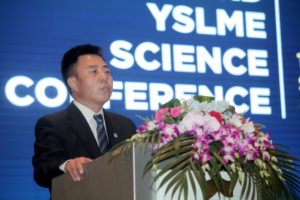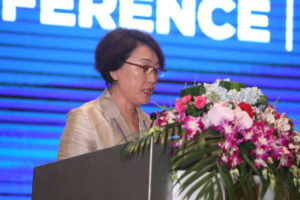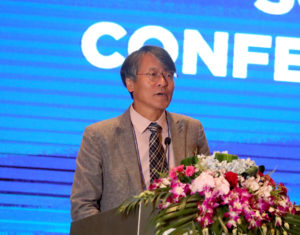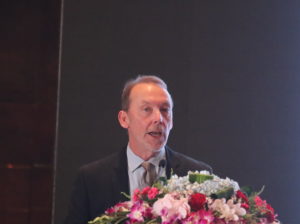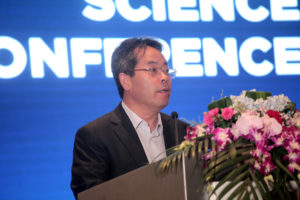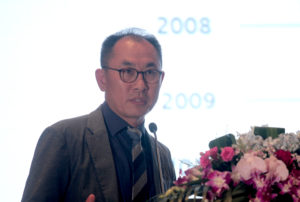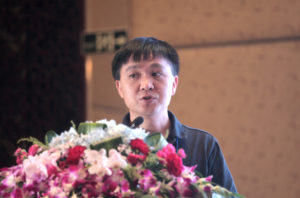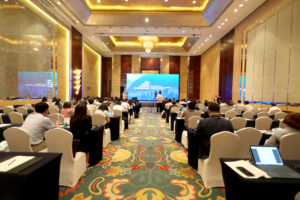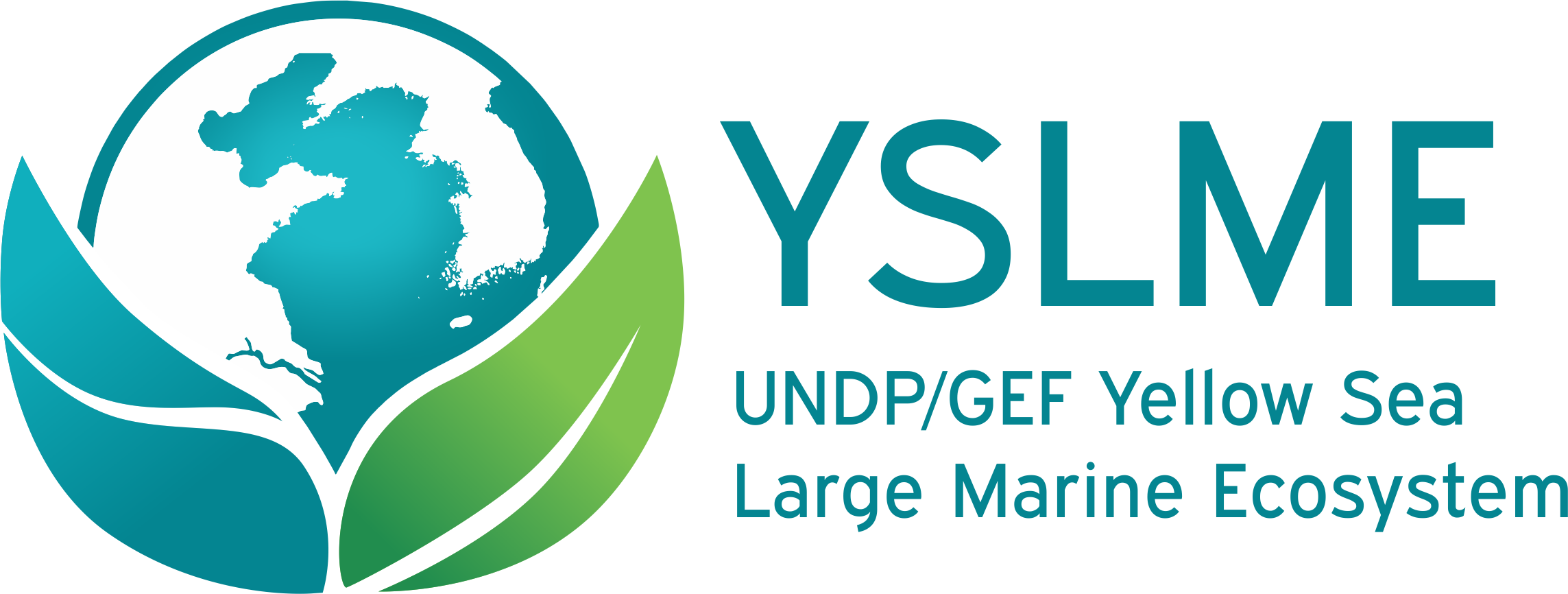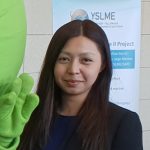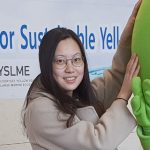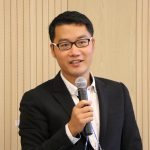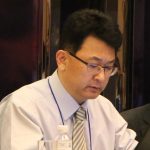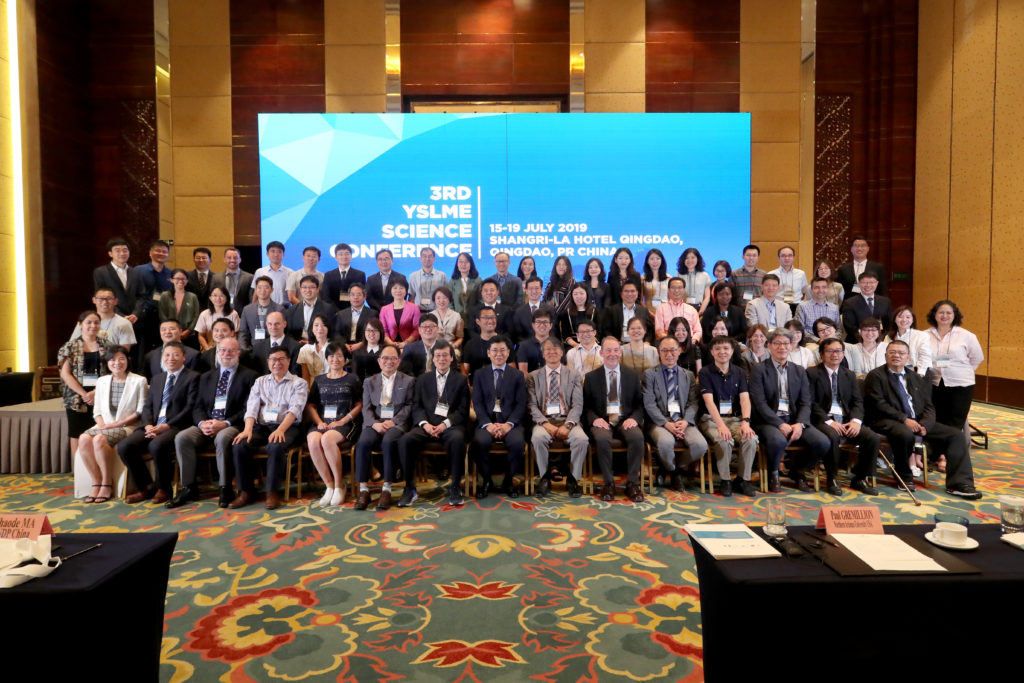
The 3rd YSLME Science Conference opened 15 July 2019 at Shangri-La Hotel Qingdao with more than 100 delegates from 50 institutions coming from 13 countries.
Representing UNDP, Dr. Chaode Ma, Program Director of UNDP China, delivered the welcome remarks. Dr. Ma highlighted the increasing global attention to biodiversity conservation and sustainable ocean development, particularly under the UN Sustainable Development Goals (SDGs) 14 on Life Below Water.
Dr. Ma underscored the importance of the Yellow Sea Large Marine Ecosystem (YSLME) as an important eco-region which provides various ecosystem services. However, while a number of good initiatives have been undertaken, challenges remain affecting the capacity of the Yellow Sea in providing goods and services. In line with this, UNDP expressed its continued commitment to the achievement of the UNDP/GEF YSLME Phase II Project, including in the formation of a long-term regional ocean governance mechanism after the YSLME Phase II Project. He called on the delegates of the YSLME Conference for continued support and to utilize the Science Conference as a platform to further share scientific findings and guidance, including in the updating process of the transboundary diagnostic analysis and strategic action program of the YSLME.
The Vice Director of North Sea Branch of the Ministry of Natural Resources (MNR) of China, Ms. Yueming Dou; the Deputy Director General of Shandong Provincial Oceanic Administration, Mr. Jiang Qingchun; and the National Coordinator of RO Korea on YSLME Project, Dr. Jae Ryoung Oh, provided the congratulatory remarks.
Ms. Dou, in particular, highlighted the good cooperation between PR China and RO Korea since 1990 with a common vision of conserving and addressing the challenges in the Yellow Sea. From China side, Ms. Dou cited the Yellow Sea Blue Bay Joint Program as one key achievement, which gained over 2 billion RMB of earmarks in support of Yellow Sea protection. The coast of the Yellow Sea-Bohai Gulf of China was recently included into the World Heritage List as a significant milestone. China offers its continued scientific support to the Yellow Sea region.
Mr. Jiang, emphasized the great importance given by the Shandong Province to the Yellow Sea as an important resource and the need to ensure its protection: “Green is Gold”. He cited the following as some of Shandong’s accomplishments: establishment of Marine Resource Environment Institute, Fisheries Special Protection Zone, and Quota Management, among others. As the Yellow Sea is a unified ecosystem, Mr. Jiang underscored the need for a unified approach to address the challenges besetting the Yellow Sea area.
Dr. Oh emphasized the importance of the Yellow Sea as a rich repository of diverse lifeforms with rich habitats that support high productivity. As such, it is an important marine resource for both China and RO Korea. In ensuring that future generations benefit in the Yellow Sea, China and RO Korea have jointly conducted the YSLME Project which first began in 2005. For the past 14 years, numerous outcomes have been achieved. He encouraged the diverse stakeholders present in the Conference to share progress made, and brainstorm on future cooperative endeavors, as the results of the Conference will provide a good foundation for the future of YSLME.
The 3rd Science Conference was officially opened by Mr. Yinfeng Guo, Chief Technical Adviser and Project Manager of the YSLME Phase II Project. Mr. Guo expressed his special appreciation to the YSLME community for their strong support in moving the projects forward. The education and capacity developed over the years, and the critical mass of expertise of the neighboring countries successfully applied science-based adaptive management in YSLME. Mr. Guo emphasized the YSLME Science Conference as a significant proof that science emerging from GEF projects contribute to regional knowledge in YSLME. The Workshop on Updating of YSLME SAP is seen as a good opportunity to capture and develop future YSLME research agenda up to 2030. He expressed his feeling of the enthusiastic spirit of the YSLME community with a shared future and wished this spirit to persist for the collective pursuit of friendship, and peace, cooperation and prosperity for the YSLME.
PLENARY KEYNOTE PRESENTATIONS
Dr. Paul Gremillion, Chair of the Department of Civil Engineering, Construction Management and Environment Engineering of Northern Arizona University, USA, delivered the keynote on the state of YSLME after 10 years of the YSLME Strategic Action Program. Based on developments and data from the 1st phase to the 2nd phase of the YSLME project, Dr. Gremillion, highlighted some of the highest-impact achievements in the past ten years:
- Reduced fishing pressures and better management of commercial fisheries;
- Promising technologies for sustainable mariculture and aquaculture;
- More comprehensive monitoring programmes and bilateral coordination;
- Nutrient control practices are being put in place to control eutrophication;
- Protection of coastal ecosystems can lead to better protection of threatened and endangered species and nursery habitats;
- Control measures for invasive species are being implemented; and
- Impacts of climate change are being evaluated.
He believes that the YSLME SAP implementation project has set in motion a series of management actions, which can be evaluated and revised, and that the fundamental management approach undertaken by the project remains valid.
Dr. Jung Nam, Director of Marine Spatial Planning Research Center of the Korea Maritime Institute (KMI), presented on sustainable marine ecosystem services and transboundary marine spatial planning in Yellow Sea. Dr. Nam indicated that the Yellow Sea coastal area is the most rapidly growing area in the world. As globally increasing attention and efforts are made on mainstreaming ecosystem services into marine planning and management, the member states of YSLME have also endeavored to prepare relevant policy arrangements, as well as apply marine spatial and resources management. Ecosystem service-based implementation was also highlighted in the YSLME SAP. However, implementation has been relatively limited and a number of legal and institutional instrument have yet to be incorporated into national policy. In this regard, Dr. Nam believes that transboundary MSP might function as a platform to mainstream ecosystem services into a regional management regime. While MSP is already being implemented, it is mostly limited to coastal areas. Dr. Nam, sees the value of transboundary MSP as a new opportunity to implement SAP and promote ecosystem service-based management for the Yellow Sea. This instrument might lead to better cooperation among current member states and a potential member and build a new regional governance.
Dr. Zhang Zhifeng, Deputy Director General of National Marine Environmental Monitoring Center, Ministry of Ecology and Environment of PR China shared an overview on scientific issues for advancing ecosystem-based management of YSLME. Based on findings under the YSLME Phase II Project, Dr. Zhang cited six key scientific issues related to eco-environmental trends in YSLME:
- Changes in basis environmental conditions (i.e., sea level, primary productivity, etc.)
- Shift of contribution of nutrient sources from riverine inputs to transboundary microalgae inputs and atmospheric deposition
- Threats of concurrent green tide, golden tide, HABs and jellyfish blooms widened
- Degradation of wetlands and shallow waters for priority species due to human activities and climate change
- Emerging environmental issues and ecological risks due to microplastics, antibiotics resistance genes, combined pollution from various POPs, marine acidification, invasive species, etc.
- Continuing challenges brought about by climate change and ridge-to-reef human activities.
In this regard, Dr. Zhang believes that strengthened EBM is needed in YSLME to better adapt to climate change as well as to respond to challenges resulting from human activities.
To access the Day 1 YSLME Science Conference report, click http://www.yslmep.org/wp-content/uploads/2019/06/DAY-1-YSLME-Science-Conference-Daily-Report.pdf
To access other conference details, including presentations and abstracts, click http://www.yslmep.org/?mec-events=3rd-yslme-science-conference.
